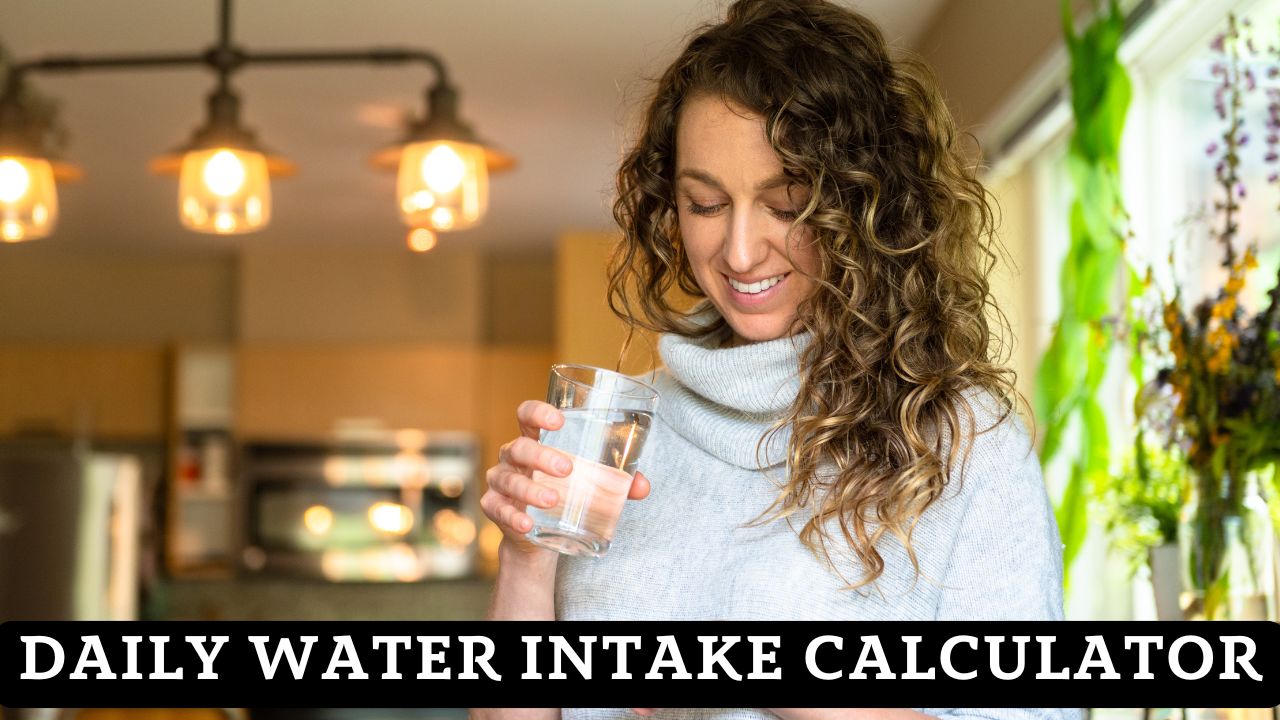Daily Water Intake Calculator
Discover your personalized daily hydration needs based on science-backed guidelines for better health, energy, and performance

How Much Water Should You Drink Daily?
Everyone’s water needs are different, but most adults need between 2.7-3.7 liters daily. Your individual needs depend on your body size, activity level, climate, and health status. Our calculator uses Institute of Medicine guidelines to give you personalized recommendations. Regular exercise increases your water needs, so active people need more than sedentary individuals.
🎯 Simple Signs You’re Drinking Enough Water
The easiest way to check your hydration is by looking at your urine color. Pale yellow means you’re well-hydrated, while dark yellow suggests you need more fluids. You should feel energetic, have moist lips, and rarely feel thirsty when properly hydrated. Proper hydration speeds muscle recovery and helps maintain your energy throughout the day for better workout performance.
⏰ Best Times to Drink Water Throughout Your Day
Start your day with a glass of water to kickstart your metabolism and rehydrate after sleeping. Drink consistently throughout the day rather than chugging large amounts at once. Have water with meals to aid digestion, and hydrate before, during, and after exercise. Reduce intake 2-3 hours before bedtime to avoid sleep disruption while maintaining good hydration levels.
Water Intake for Active People and Athletes
🏃 Exercise and Your Water Needs
When you exercise, you lose water through sweat and increased breathing. For every hour of moderate exercise, drink an extra 150-250ml of water. For intense workouts or hot weather training, you may need even more. Strength training and high-intensity workouts increase your fluid needs significantly, especially during longer sessions.
🔥 Hot Weather and Hydration Strategies
Hot, humid conditions dramatically increase your water needs. Start hydrating well before outdoor activities in heat. Drink small amounts frequently rather than waiting until you feel thirsty. Consider drinks with electrolytes for extended activities over an hour. Core strengthening exercises can be particularly demanding in hot weather, requiring extra attention to hydration.
⚖️ The Weigh-In Method for Athletes
Weigh yourself before and after exercise to track fluid loss. For every pound lost, drink 16-24 ounces of fluid. This method is especially important for athletes in hot conditions or during long training sessions. Your urine should return to pale yellow within 6 hours after exercise if you’re rehydrating properly.
Water Calculator: Understand the Science
Our calculator follows scientifically-established guidelines from the Institute of Medicine, which reviewed extensive research to determine adequate water intake levels. These recommendations account for water from all sources – beverages, food, and drinking water. About 20% of your daily water comes from food, especially fruits and vegetables. The remaining 80% comes from beverages of all types.
📊 Why Age and Gender Matter
Men typically need more water than women due to larger body size and higher muscle mass. Age affects water needs because kidney function and thirst sensation change over time. Children have higher water turnover relative to body weight, while older adults may have reduced thirst awareness. Building muscle mass with exercises can increase your baseline water needs as muscle tissue requires more hydration than fat tissue.
🤱 Special Considerations for Women
Pregnant women need about 3.0 liters daily to support increased blood volume and fetal development. Breastfeeding mothers require approximately 3.8 liters daily – the highest water needs of any group. Hormonal changes during menstruation can also affect fluid balance and hydration needs. Regular monitoring becomes especially important during these periods.
Common Hydration Questions and Myths
❓ Does Coffee and Tea Count as Water?
Yes! All beverages contribute to your daily fluid intake, including coffee, tea, milk, and juice. While caffeine has a mild diuretic effect, regular coffee drinkers develop tolerance, and the fluid in coffee still provides net hydration. However, water remains the best choice as it’s calorie-free and doesn’t contain added sugars or stimulants that might affect some people.
❓ Can You Drink Too Much Water?
Yes, but it’s rare for healthy people during normal activities. Drinking excessive amounts very quickly can dilute blood sodium levels (hyponatremia), which can be dangerous. This typically only occurs when consuming several liters within a short time period. Spread your water intake throughout the day and listen to your body’s thirst signals.
❓ What About the “8 Glasses a Day” Rule?
The “8×8 rule” (8 glasses of 8 ounces) is a simple guideline but not based on specific scientific evidence. It equals about 1.9 liters, which may be adequate for some people but insufficient for others, especially active individuals. People doing intense hamstring workouts or other demanding exercises need significantly more water than this basic recommendation.
❓ Do I Need Sports Drinks for Hydration?
For most people and typical exercise sessions under an hour, water is perfectly adequate. Sports drinks become beneficial during prolonged exercise (over 60-90 minutes), intense sweating, or hot conditions when you need to replace electrolytes. For daily hydration and most home workouts, plain water is the best choice and most cost-effective option.
⚕️ Important Health Information
This water intake calculator provides general hydration guidance based on established scientific guidelines and should not replace professional medical advice. Individual water needs vary significantly based on health conditions, medications, kidney function, and other factors. People with heart disease, kidney disease, or other medical conditions should consult healthcare providers before making significant changes to fluid intake. The calculator’s recommendations include water from all sources (beverages and food) and represent adequate intake levels for healthy individuals. Always listen to your body’s thirst signals and monitor urine color as practical indicators of hydration status. If you experience persistent excessive thirst, changes in urination patterns, or other concerning symptoms, seek medical evaluation promptly.
